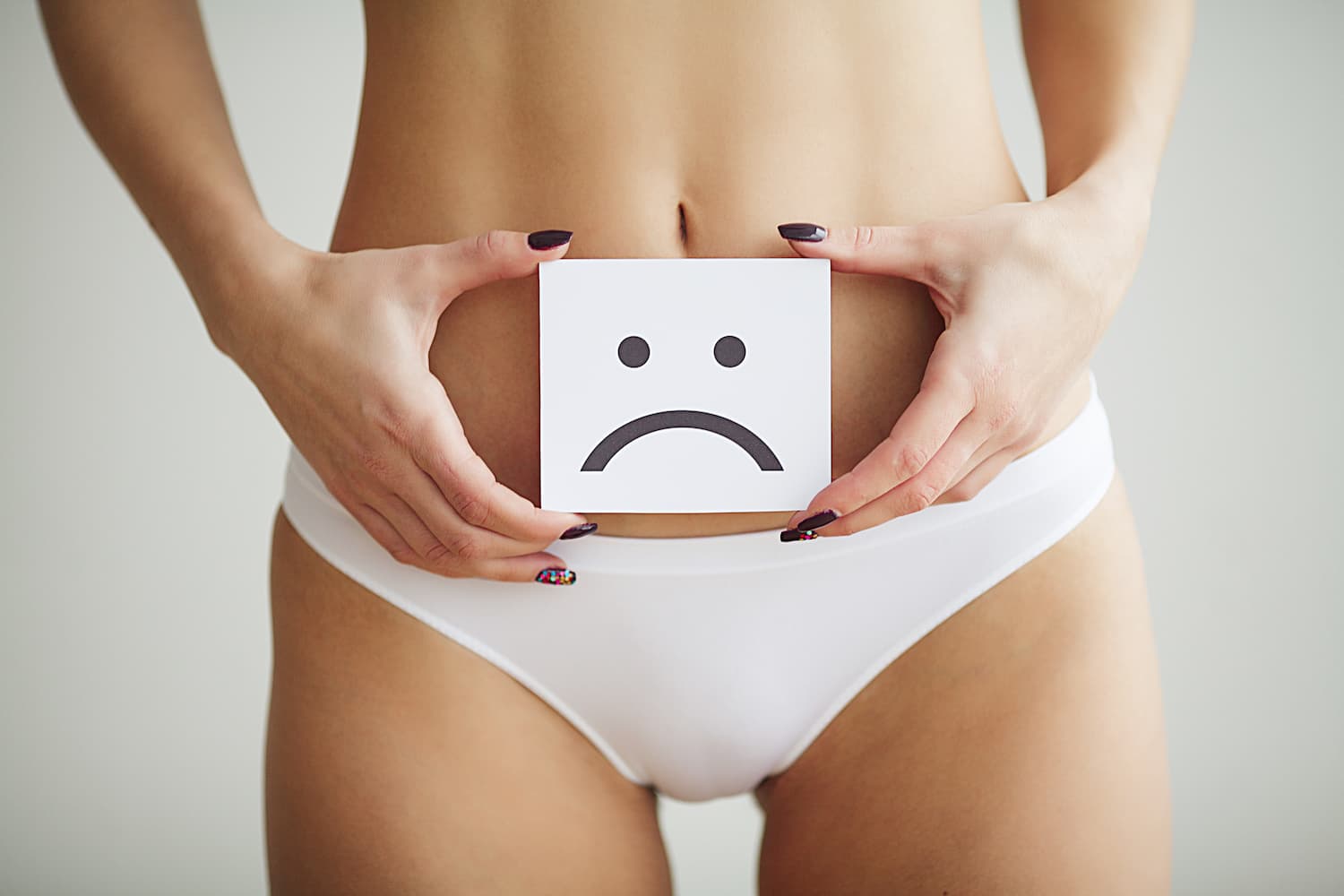Vaginal Dryness
Vaginal dryness is extremely common – but unfortunately, it is often one of those things that doesn’t get spoken about enough due to embarrassment being perceived as a taboo subject.

So, what causes vagina dryness?
After the menopause, around 58% of women will experience vaginal dryness, however, it can affect women at other stages of their life, for example:
- Childbirth and breastfeeding
- Smoking
- Douching and over-washing
- Vaginal deodorant and perfumed soaps
- Certain medications, including cold and flu remedies
- Immune disorders
- Heavy, extended periods
- Overuse of tampons
When everything is working as it should be, the vagina and the surrounding inner mucosa of the vulva should be moist and plump. Glands withing the cervix produce moisture keeping the vagina clean and well-lubricated. Ideally the PH of the vagina should be slightly acidic to keep infections at bay. Women may note a whiteish discharge, which is normal and part of the usual self-cleaning process of the vagina.
What is a colposcopy?
If you’re suffering from vaginal dryness, you may find yourself feeling sore and itchy ‘down there’, you may be prone to smelly discharge and sex may feel like a painful chore rather than a pleasure; you may find yourself having to frequently visit the loo and being becoming more prone to cystitis. Sometimes, vaginal dryness can even cause bleeding, as the walls of the vagina rub together with no lubrication. Normal activities such as sitting, standing and exercise may become difficult. Many women report this issue can also impact them at work.
Itchiness may be mistaken for candida albicans, but unfortunately, thrush treatments won’t have an effect in dryness.
Many women start to notice vaginal dryness in the years leading up to the menopause (the perimenopause). Dryness at this time may occur at particular times in the menstrual cycle, due to fluctuating levels of oestrogen. As oestrogen levels fall more rapidly as the menopause approaches, this will lead to a thinner, less elastic and more delicate vaginal lining.
How is vaginal dryness treated?
- For women who are premenopausal, and finding vaginal dryness an issue during sex, a water-based lubricant applied before lovemaking can really help.
- Applying a vaginal moisturiser every three days can help. These line the inside of the vagina, providing moisture, lubrication and comfort
- Local Oestrogen – woman can be prescribed pessaries or vaginal rings which have been shown to help with vagina dryness which keep the vaginal pH in balance
- Hormone replacement therapy (HRT) can relieve symptoms of vaginal dryness, as well as other menopausal symptoms such as hot flushes, night sweats and low mood
- Laser and radiofrequency treatments - these minimally-invasive treatments heat up the tissue, stimulating the body to rebuild and restore collagen within the vaginal tissue, relieving vaginal dryness
The issue of vaginal dryness is often shrouded in silence. Talking about it may feel embarrassing. However, it’s important for women to realise there is help out there.
Working with your specialist gynaecologist, you can find the solution that is right for you.
If you would like some more information on vagina dryness, its causes and treatments available, we would be happy to discuss any queries you may have.

